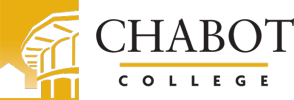
Early Childhood Intervention Assistant
This program map from the 2024-2025 catalog year represents one possible pathway to complete this program. Your pathway may vary depending on your transfer plans and also previous college credit, including AP Test scores, concurrent enrollment courses and high school articulated courses.
I'm ready to get started. What do I do next?
- Review this program map to get an overview of the required courses
- Meet with a counselor to develop your customized student education plan www.chabotcollege.edu/counseling
- Use DegreeWorks, an online student education planning tool, to track your progress toward graduation www.chabotcollege.edu / admissions / degreeworks
This certificate gives students interested in providing inclusive services to all children a foundation of understanding and skills for working with children with special needs. You will get the opportunity to participate in fieldwork experiences where you can apply learned theoretical models and early intervention methods in inclusive educational settings as well as special day classes that serve young children with disabilities.
What can I do with this major?
Learning and Career Pathway
- Social Sciences, Humanities & Education